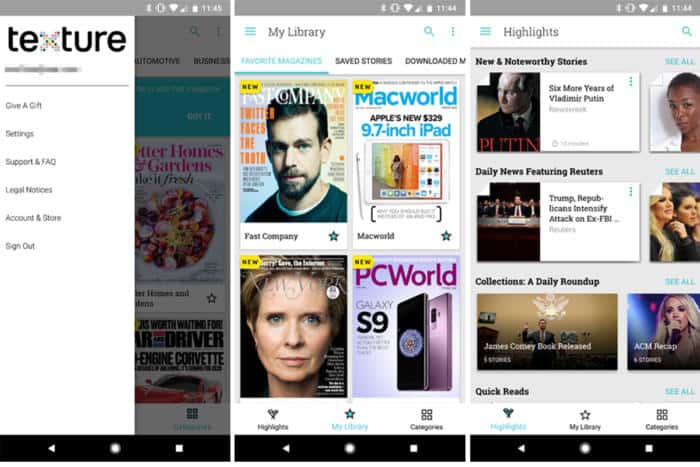
Zaid Rahman, CEO of Flex, told PYMNTS that the traditional channels through which small businesses manage their finances and their operations leave plenty of room for innovation, and for improvement.
Most small to midsize businesses (SMBs) do not have the time or resources or staff to manage back office functions in an optimal manner. They don’t have employees tasked solely with managing day-to-day dollars in and out of the firm and project working capital needs.
To be sure, as Rahman said, there are a slew of providers out there offering solutions for each part of an SMB’s operations, from payroll to banking to expense management.
“There are some big players and some small players, but it’s all very piecemeal,” he said, “and since there isn’t a CFO at these companies, you don’t have the time to compile 15 different products into one back office.”
Firsthand SMB Insight
And he’s witnessed the challenges faced by SMBs firsthand, as several of his relatives ran small businesses in a variety of verticals, including construction, architecture and logistics.
“I saw the problems close up,” he said, adding that “oftentimes the biggest issue is finance.”
SMBs also face challenges when it comes to working capital. Traditional lending channels offer multiyear term loans, with rates, currently, reflecting the high cost of capital. A pizzeria owner who gets a working capital loan of, say, $100,000 to open up shop and buy ovens is then tethered to a three- to five-year loan with double-digit APRs.
“What business owners really need,” he said, “is actually short-term ‘float’ … a little bit of capital, today, to go ahead and buy inventory, buy materials, buy whatever they need to then go and make money from [those purchases] and have a payback within 30, 60, 90 days.”
A single finance app, he said — a single point of access and insight consolidating the back office onto a platform — can help address the specific pain points confronting SMBs, while helping them scale.
Building a Super App
PYMNTS’ own data shows that Main Street SMBs have been facing cash crunches and anticipate seeking more credit in 2024 and will explore a range of options. But many banks, as per Federal Reserve surveys, have been tightening their underwriting.
The conversation came as Flex (formerly Flexbase) said Tuesday morning (Sept. 19) that it closed a $120 million Series A debt and equity funding round. The funding was led by Florida Funders, with participation from Home Depot Ventures, Community Investment Management, Companyon Ventures and MS&AD Ventures.
In tandem with the announcement, Flex has launched its Flex Credit Card, Flex Banking and finance super app.
The Flex Credit Card, Rahman said, offers 0% interest for 60 days on all purchases, for both physical and virtual cards with category and spending limits. Credit limits can be increased as the business grows, Rahman said. The card is issued by Patriot Bank, N.A. Flex’s debit cards offer 1% cashback on transactions; the debit card is issued by Thread Bank.
With Flex Banking, businesses can manage cash all from one place, and Rahman said that Flex provides banking with up to 4% yield on idle cash.
Flex’s Treasury Management functions — offered through partner American Deposit Management — let SMBs diversify accounts across multiple financial institutions (roughly 400 FIs are in place), with up to $75 million in FDIC/NCUA insurance. It comes as an invite-only offering for Flex’s largest clients. The diversification may prove especially attractive in an environment, Rahman said, where bank runs (Silicon Valley Bank among them) are only recently in the rearview mirror.
Some SMBs might start out with credit but embrace Flex’s adjacent offerings (“credit is the wedge product,” he said). “When you combine all of these things,” Rahman told PYMNTS, “we become a ‘single place’ for your business wallet.”
He noted that the cross-pollination of products, and robust data, along with granular insight into its client firms’ cash flows, helps gain “a much richer, algorithmic understanding of the business, that goes well beyond credit scores and [Dun and Bradstreet] scores that might only be surface level.”
He added that cash-intensive businesses, such as construction and eCommerce, where companies must buy inventory and materials before sales can be made (and eventually paid for by customers weeks or months later) are the firms that benefit from leveraging float across the Flex platform.
The positive impact extends beyond individual businesses and improves the dynamics between SMBs and their customers, improving business-to-business (B2B) payments overall, Rahman said. Initiatives on the horizon may include Flex expanding its credit products with a “cash upfront” feature that also enables better discounting — confronting “a multitrillion-dollar problem” that has traditionally been mired in paper checks and invoices. “There’s a lot of room for innovation and a lot of room for solving how supplier credit works in this ecosystem,” he said.
Asked by PYMNTS how Flex will be allocating the newly received funding in the months ahead and over the longer term, Rahman said, “There are quite a few products that we want to work on to bring every single aspect of the back office into one unified experience. … The common denominator across all of these products is the flow of funds — the money into the business and going out of the business.”
























